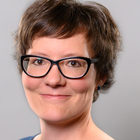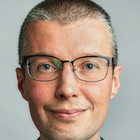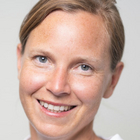The new EU Development Commissioner: from Cutting Ribbons to Influencing Global Development?
Koch, Svea / Niels Keijzer / Christine HackeneschThe Current Column (2014)
Bonn: German Development Institute / Deutsches Institut für Entwicklungspolitik (DIE) (The Current Column of 4 November 2014)
Bonn, 4 November 2014. This week, the new EU Development Commissioner Neven Mimica takes office. He will have little time to get acquainted with his new job. Mimica will not only have to deal with a number of global crises but also launch medium to long term reforms that transform EU development policy. Several crises leave the impression that the status of the world is more fragile and alarming than at previous inaugurations: from the horrifying violent conflicts in Syria and Iraq and the related refugee catastrophes, the devastating Ebola pandemic, the crisis in Ukraine to resurging conflicts in South Sudan, Somalia, the Central African Republic or the coup d'état in Burkina Faso. These crises not only call for immediate action, but also for close collaboration with Mimica’s colleagues who work on the EU’s neighbourhood, foreign affairs and humanitarian aid and challenge him to proactively influence Europe’s overall global engagement, as opposed to acting as his colleagues’ checkbook. Mimica’s first year will also challenge him to galvanise Europe’s contribution to three major global events: the post-2015 development agenda, the climate conference in Paris, and the International Conference on Financing for Development in Addis Ababa. All three are not just another addition to a series of global agreements. They will have systemic effects on the future of (not only) development policy. And they will require not less than a transformation of EU development policy. Negotiating and implementing these agreements ask for an ambitious, risk-taking, and courageous Development Commissioner, and similar change of attitude and engagement on the side of the European Parliament, Member States and European development constituencies. Here’s why: A traditional approach to development policy, which is focused first and foremost on poverty reduction and on how to spend dedicated financial resources for this purpose, will not be enough. It might have been for Andris Piebalgs, who mainly focused on the Millennium Development Goals (MDGs), and their focus on basic needs and extreme poverty eradication, while reaching out to new areas and actors such as energy and the private sector. The post-2015 development agenda will still have poverty reduction at its core, but will be highly interlinked with other global challenges such as climate change, sustainable consumption and production and the promotion of peaceful and more equal societies. These are not separately attainable goals. Failure or setbacks in the area of climate change and conflict prevention will adversely affect development progress and threaten further economic and social progress, not only in ‘poor countries’ but also in the EU. EU development policy will thus not only have to broaden its objectives beyond poverty reduction but also accept that investments in conflict prevention and management and climate change mitigation and adaptation can be as important for poverty reduction and global development as investments into health and education. Given their interdependence, arguments that new agendas are displacing poverty reduction efforts are essentially flawed, as only a balanced effort will support global development. The new development agenda requires highly integrated policy responses from the EU. Existing ways of working and managing EU development policy in isolation from other EU external policies are no longer an option. In the past, this approach was often justified by the attempt to shield development policy and its earmarked budget from being subordinated to foreign or trade policy interests. While it will remain important to advocate for international development that is not subjected to short-term foreign policy and economic interests, inter-institutional co-operation and a better coordination of various internal and external policies will be ultimately necessary. Establishing regular meetings of Commissioners dealing with the EU’s external policy (and beyond) is a step in the right direction. But it will require a Development Commissioner who not only ‘waits to be coordinated’ but actively reaches out to other Commissioners and the High Representative to promote joint policies and coordinated action. Finally, Neven Mimica will have to develop a new truly European vision for development policy. The 2005 European Consensus on Development describes a hard-fought shared vision between member states and the Commission for the key guiding ideas for the EU as a whole. After 2015 this Consensus will inevitably be outdated. New objectives, new alliances and shifting power structures will require the EU to agree on a new vision that clarifies how EU development policy will adapt to these transformations. The new vision will also have to specify how member states and the Commission intend to enhance a better unified global representation of the EU and better coordinated policies and action. To meet these challenges, Neven Mimica should strife each day to live up to his title of Commissioner for “International Cooperation and Development”, as today’s world no longer needs a Commissioner who restricts himself to cutting ribbons and opening schools and hospitals.



